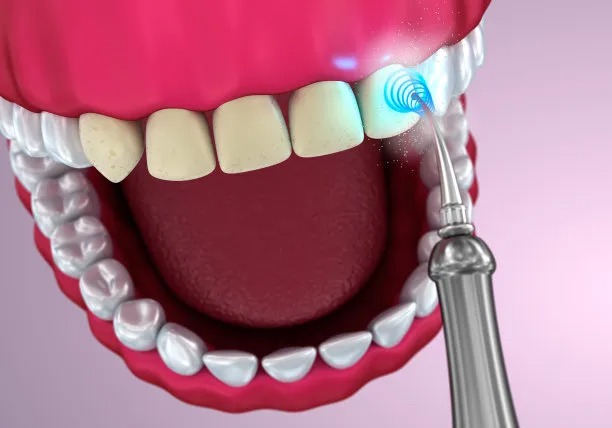Summary: Dental fillings are an essential part of maintaining oral health, especially when dealing with cavities or damaged teeth. This article provides comprehensive guidelines to ensure patients are well-prepared before getting fillings and aware of the necessary post-procedure care to optimize their comfort and health. By understanding these essential steps, individuals can minimize discomfort, avoid complications, and help maintain the longevity of their dental work. We will cover pre-appointment preparations, post-filling care, pain management techniques, and the importance of follow-up visits, ensuring a holistic approach to oral health management.
1. Preparing for Your Dental Filling Appointment

Before receiving a dental filling, preparation is key to ensuring a smooth experience. Firstly, it’s essential to communicate openly with your dentist regarding any concerns you may have. Discussing your dental history, allergies, and any medications you are currently taking ensures a safe and tailored approach to your treatment.
Secondly, consider scheduling your appointment at a time when you can relax afterward. Feeling rushed or anxious about the procedure can heighten discomfort. Arriving at the clinic with a calm mindset will help ease any nervousness.
Lastly, ensure that suitable arrangements are in place for transportation. Depending on the anesthesia used, it may not be safe to drive immediately following the treatment, so coordinating a ride home can provide added peace of mind.
2. Understanding Post-Filling Care Instructions
Post-filling care is vital for a successful recovery and to maintain your oral health. Immediately after your dental filling, it is important to avoid eating or drinking until the anesthesia wears off to prevent biting your tongue or cheek unintentionally.
Once the effects of anesthesia have dissipated, prioritize a soft-food diet, especially for the first few days. Foods such as yogurt, smoothies, and mashed potatoes will help minimize discomfort while allowing your filling to settle securely in place.
Additionally, maintaining proper oral hygiene post-filling is essential. Brush and floss your teeth gently around the filled area, being careful not to disrupt the filling itself. Regular dental care will help avoid further cavities and ensure your dental work lasts as intended.
3. Managing Pain and Discomfort After Receiving Fillings
Pain management following a dental filling is often a concern for patients. After the procedure, mild pain or sensitivity is entirely normal. Utilizing over-the-counter pain relievers, such as ibuprofen or acetaminophen, can alleviate discomfort effectively, as directed by your dentist.
If sensitivity persists for more than a few days, returning to your dentist for a follow-up evaluation is recommended. They can assess if the filling has settled appropriately or if there are underlying issues that need addressing.
In addition, applying a warm compress to your cheek can provide soothing relief if swelling occurs. This approach can help rejuvenate your comfort level while allowing healing to progress smoothly.
4. The Importance of Follow-Up Visits
Follow-up visits play an integral role in ensuring the long-term success of your dental filling. Scheduling a check-up approximately two to four weeks after the procedure allows your dentist to evaluate the filling and determine if any adjustments are necessary.
During these visits, its crucial to discuss any ongoing concerns or changes in your oral health since the filling. This feedback helps your dentist tailor future treatments and maintains the effectiveness of your dental care.
Lastly, consistent follow-up appointments can detect issues early, such as recurrent decay or cracks in the filling. An early intervention can save you time, money, and discomfort in the future, promoting optimal oral health.
Summary:
In conclusion, adequately preparing for and caring for dental fillings is essential for maintaining oral health and comfort. Following these guidelines can help ensure a successful experience, alleviating anxiety and discomfort while promoting longevity in dental work. Your oral health is a lifelong commitment, and being proactive about it makes a significant difference.
This article is compiled by Vickong Dental and the content is for reference only
Vickong Dental
Vickong Dental is a large medical group established in Hong Kong in 2008 by professors from well-known medical universities in Guangdong and Hong Kong, as well as medical doctors from key national '985' universities (including Master's supervisors and senior professors). The chain of branches brings together expert dentists with PhDs and Master's degrees from Hong Kong and Mainland China, committed to providing high-quality dental treatment.
"Vickong Dental Practices the University Motto of 'Healing and Serving Society,' with a Stable Operation for Sixteen Years. It Has Been honored with Hong Kong Enterprise Leaders's Choice,' and is a Global Trusted Implant Center for the Nobel Implant System. Recommended by Hong Kong Metro Broadcast and Guangdong Television, it Serves Customers from Over Thirty Countries and Regions, Gaining the Trust and Favor of Citizens from the Guangdong-Hong Kong-Macau Greater Bay Area and Surrounding Cities.

Thousands of customers' unanimous praise
The most recognized and highly recommended dental service by customers in the Guangdong-Hong Kong-Macau Greater Bay Area
We Ensure You Receive Detailed Care and Attention Here
Hong Kong standards, Shenzhen prices, Your Trusted English-speaking dentists

Vickong Dental Medical-Grade Instrument Disinfection Process
Vickong Dental Medical-Grade Instrument Disinfection Process

Vickong Dental Chain: A Warm and Comfortable Environment for Treatment






Appointment Hours

Q&A
Why choose Vickong Dental?
Vickong Dental practices the university motto 「Medicine to Benefit Society」, with each branch bringing together highly qualified dentists with doctoral and master’s degrees from Hong Kong and the Mainland, and has maintained seventeen years of steady operation。Recipient of 「2024 Hong Kong Enterprise Leaders Brand」, 「2025 Hong Kong Enterprise Leaders Brand」, a Nobel Biocare Global Trusted Implant Center, and a brand recommended by Metro Radio Hong Kong and Guangdong TV。
To date, we have served customers from more than thirty countries and regions,earning exceptionally high word-of-mouth recognition and trusted recommendations from residents across the Guangdong-Hong Kong-Macao Greater Bay Area and surrounding cities
We have eight major branches in Zhuhai、Shenzhen,and a consultation and service assurance center in Hong Kong,so you can book a free consultation at any time for any questions,which is very reassuring.
If I do not accept the quotation after the CT scan, will I be charged??
No! As long as the actual treatment has not started, you will not be charged any fees.
Will there be any additional charges during the treatment process?
No, there won’t be any additional charges. Before treatment begins, we will clearly explain the treatment plan and its corresponding fees. Only after the patient agrees and signs the consent form will we proceed with the dental service.
Can I pay in Hong Kong dollars?
Yes. Vickong Dental accepts payment in Hong Kong dollars. The amount will be converted based on the exchange rate of the day, and the applicable rate will be clearly communicated to you in advance.
Can I reschedule my appointment at any time?
Yes. Please contact us via **WeChat** or **WhatsApp** as early as possible, providing your original appointment time and details, along with your preferred new date and time slot for rescheduling.













